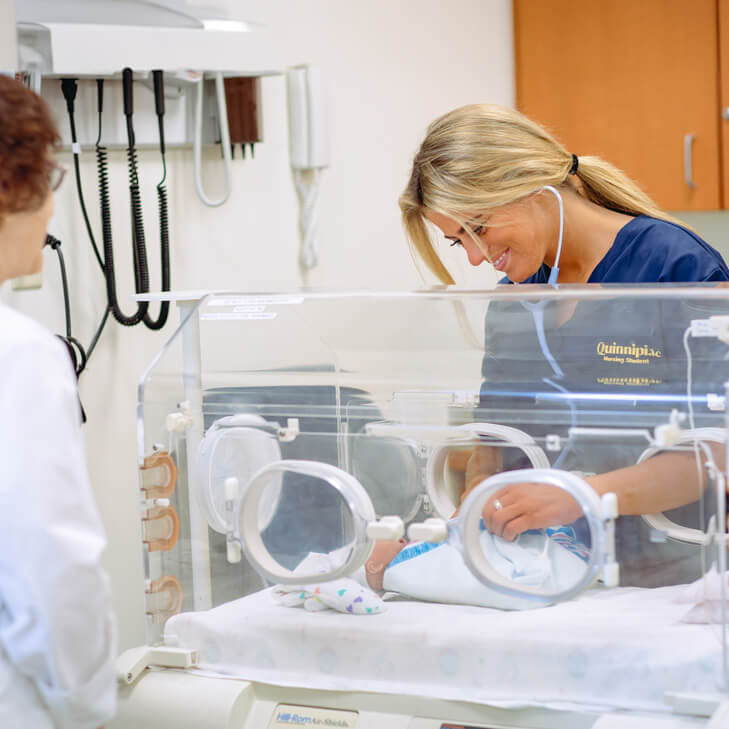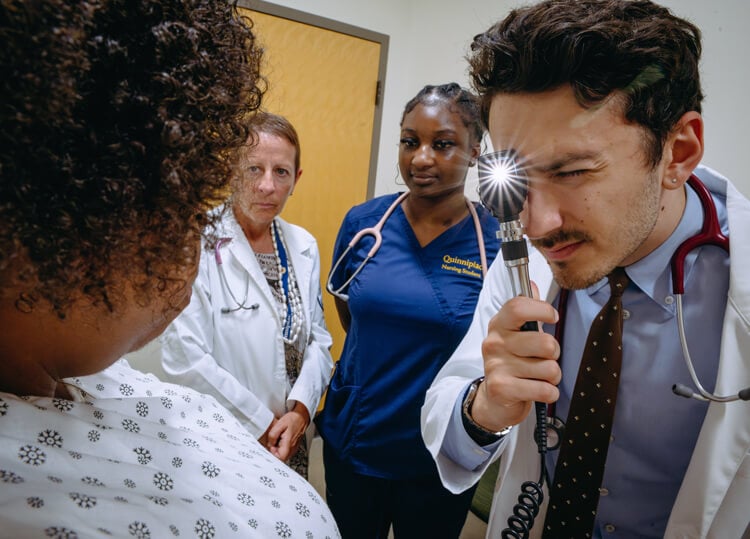Jan
School of Nursing
Our bachelor’s, master’s and doctoral programs will prepare you for a successful career in hospitals, clinics, schools and many other settings. Our graduates become leaders at every level of their careers and facilitate positive changes to healthcare as it relates to government, law and patient care. They are true advocates for their profession in the level of care they provide and in how they continually strive to improve the safety and well-being of their patients.
By the Numbers
Transforming health care, one student at a time

Explore Our Facilities
Our unique approach to patient care has distinguished us as the only bachelor’s degree program in New England and 1 of only 17 nursing schools in the nation that offer programs endorsed by the American Holistic Nurses Credentialing Corporation. Equally important to our philosophy of holistic care is our commitment to inclusivity within the Quinnipiac community, the surrounding local community and the global community at large.
Our faculty set the example you’ll follow and are immersed in integrated practice through ongoing clinical experience and research. They bring real-life applications, teachable experiences and knowledge of current practices to the classroom every day. Through their guidance, you’ll learn to address the whole patient by understanding their physical, socioeconomic and emotional needs.
Purposefully located within the Medicine, Nursing and Health Sciences building, you’ll experience the essential role nurses play in integrated teams as you regularly collaborate with students from other healthcare programs. The knowledge, instincts and team-based skills you develop in classrooms and labs will be the foundation for your clinical and field work. As you accumulate experience, your skills and confidence will reach the levels necessary to handle all the challenges inherent in 21st-century healthcare.
A Healthy and Welcoming Community
Empowering the next generation of nurses
The School of Nursing white coat ceremony honored 185 members of the BSN Class of 2026 and 50 members of the Accelerated BSN Class of August 2025. School of Nursing faculty bestowed white coats upon each of the students, together with pins provided by the Arnold P. Gold Foundation.
Compassionate Patient Care
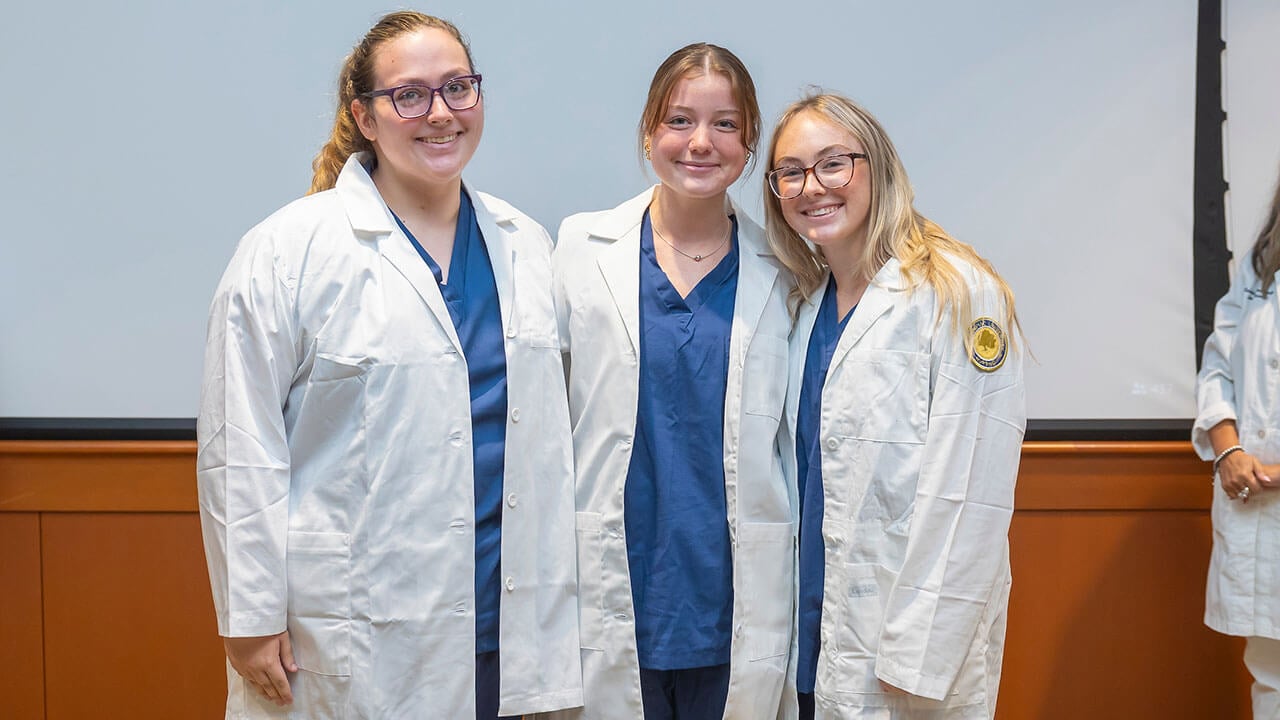
The School of Nursing offers students a path to become nurses through bachelor's, master's and doctoral programs. Quinnipiac School of Nursing students receive a top-notch education that prepares them for careers in hospitals, schools, or clinics. Students will be advanced in patient care and know how to handle any situation that arises.
You'll experience:
-
Dedicated faculty members with years of experience in all specialities of nursing
-
Access to over 300 clinical sites where students gain hands-on experience outside of the classroom
-
A range of student organizations, such as the Student Nurses Association, which supports undergraduate nursing students with mentorship, guidance and professional development
-
Unlimited access to career resources that help students land top jobs in the demanding field of nursing
-
Ability to practice in state-of-the-art facilities, such as the Simulation Laboratory, where students and faculty have access to a fully-equipped practice space designed to put classroom knowledge into action
-
A community-focused program that works with local leaders to educate and treat individuals in the surrounding areas
New Programs in Nursing Education
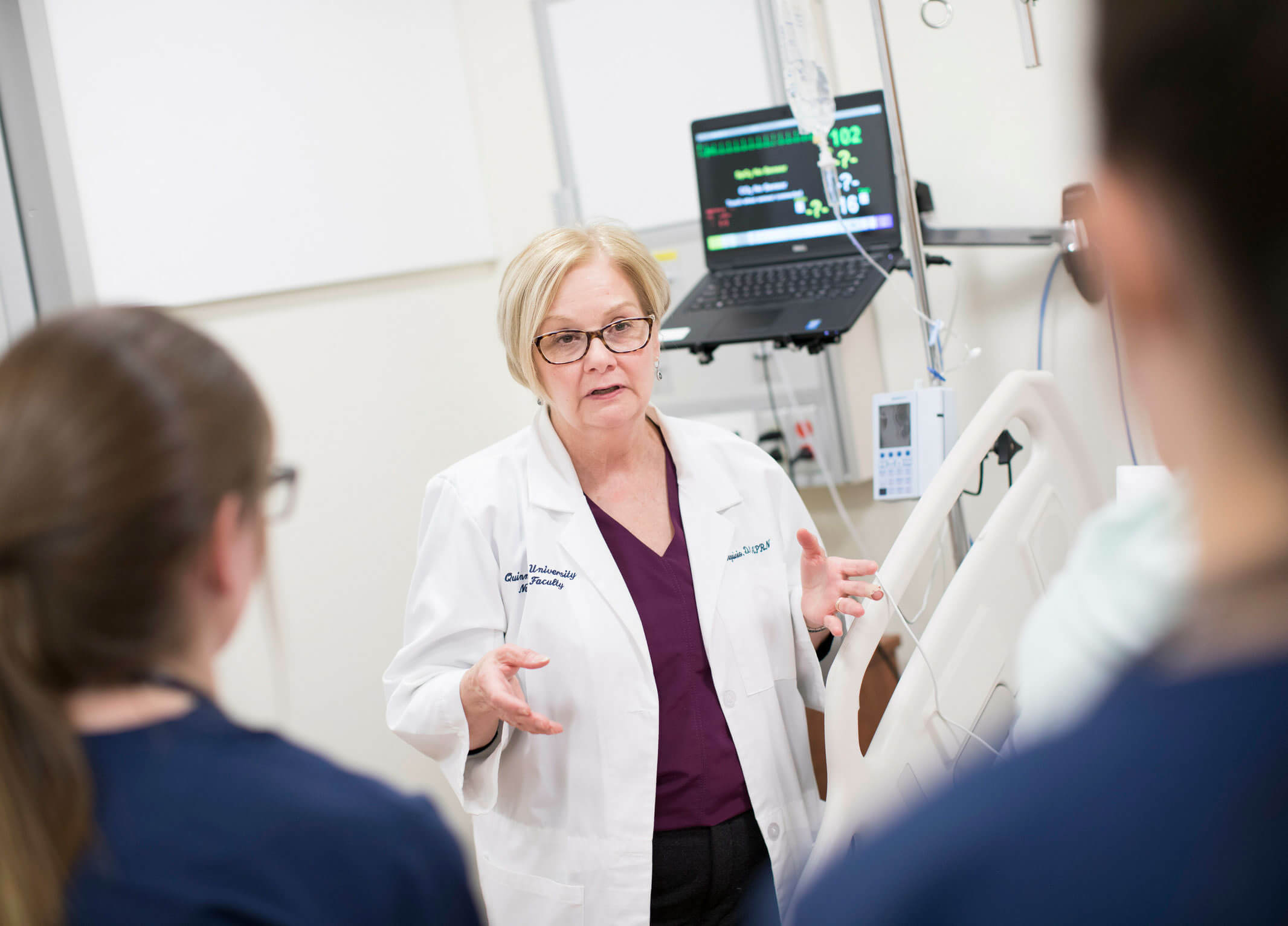
New nursing education programs address critical national nursing shortage
March 11, 2025
New Careers in Nursing Program for Hartford HealthCare Employees
Faculty Excellence
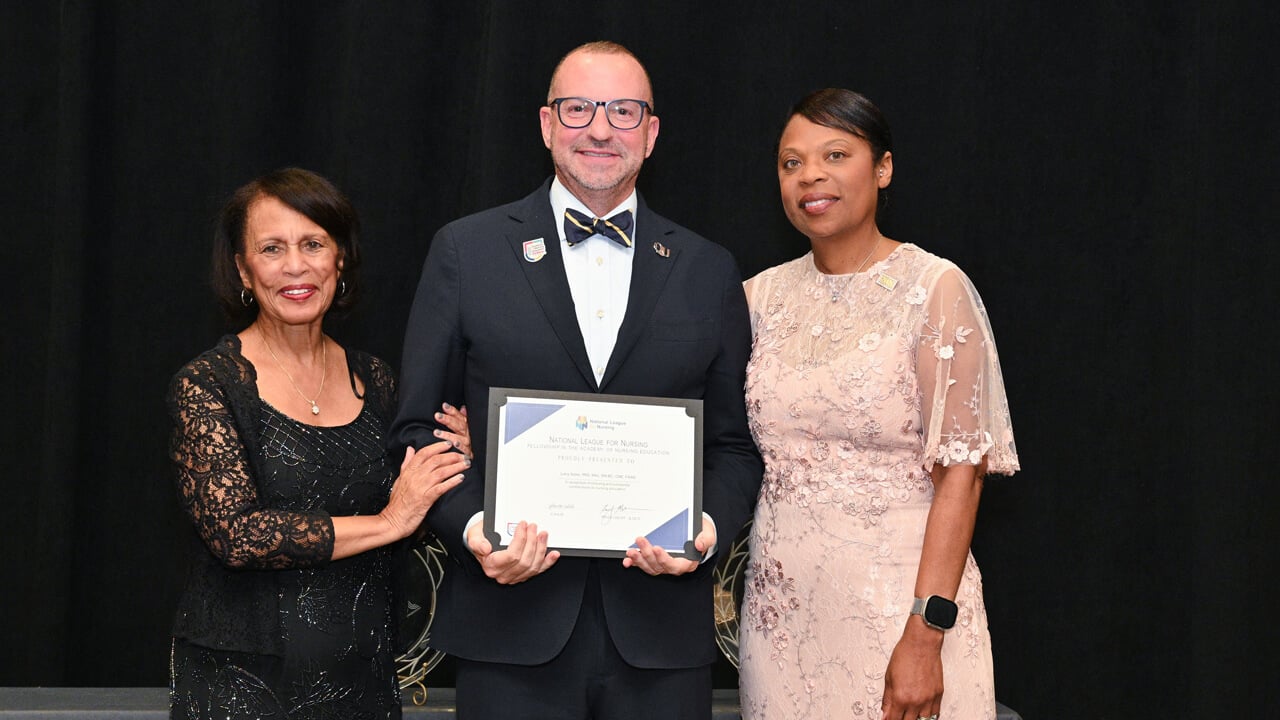
School of Nursing Dean named National League for Nursing Academy of Nursing Education Fellow
Larry Slater, dean of the School of Nursing at Quinnipiac, has been named a 2025 Fellow of the prestigious National League for Nursing Academy of Nursing Education. He joins a distinguished group of just 23 educators nationwide selected this year for their exceptional contributions to advancing nursing education.
Join Us at an Upcoming Event
Our Reputation
Our Strategic Plan
The School of Nursing has developed a comprehensive, three-year strategic plan to ensure that our efforts and initiatives meet with intentionality, most notably, our school’s mission, vision, core values and strategic priorities.
Our Year in Review
Our annual viewbook provides a visual journey that brings our philosophy of nursing education and practice to life. It details the student experience and class profiles as well as how we continue to innovate in our teaching and expand our clinical partnerships. It also covers the many ways our students, faculty, staff and alumni have distinguished themselves throughout the academic year, be it through clinical excellence, community impact and research, or earning prestigious grants and national awards.
Advisory Council
The School of Nursing has established an Advisory Council that provides strategic direction to the school’s leadership. Members of the Advisory Council bring decades of experience and leadership and provide crucial insight into a broad scope of healthcare and nursing industries and professions. They also act as liaisons to a number of leading organizations.
Accreditation
Commission on Collegiate Nursing Education (CCNE)
The Bachelor of Science in Nursing program, the Master of Science in Nursing program and the Doctor of Nursing Practice program at Quinnipiac University are accredited by the Commission on Collegiate Nursing Education, 655 K Street, NW, Suite 750, Washington, D.C. 20001, 202-887-6791.
American Holistic Nurses Credentialing Corporation
The Bachelor of Science in Nursing programs within Quinnipiac University’s School of Nursing also are endorsed by the American Holistic Nurses Credentialing Corporation. Graduates of these programs are eligible to take the appropriate national exam to become board-certified holistic nurses at the basic or advanced level of nursing (HNB-BC).
Summer Programs for High School Students
This summer, take a vacation from the ordinary and continue your education in one of Quinnipiac’s high school summer programs. We are proud to offer a growing list of summer programs designed to give dedicated high school students a chance to grow academically and personally while getting an early taste of the college experience.
Continuing and Executive Education
Lifelong learners stay current with, bring advances to and create readiness for the drastic changes in technology, industry and communities around the world. Our array of online, on-campus and hybrid programs — including open enrollment programs and custom solutions for organizations — address market needs and give working professionals and executives the specialized skills and training you need to advance your career.
Quinnipiac follows NACE First-Destination Survey Standards and Protocols for the collection and dissemination of undergraduate student initial career outcome information six months after graduation. Learn more about the standards for statistics and reporting used by Quinnipiac.
Contact the School of Nursing
We're always here to help provide additional information and answer any questions you may have.
Keep up to date with the latest information about the School of Nursing.
QU Today SON Events Opens in a new tab or window.
